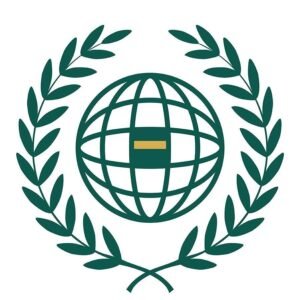Riyadh: Saudi Arabia plans to turn city into global fintech capital

Saudi Arabia has expressed plans to turn Riyadh into the global fintech capital.
“If you have somehow missed the happenings in Saudi Arabia’s fintech scene, now is the time to pay serious attention,” says Abdulaziz al-Dahmash, Managing Director – Kingdom of Saudi Arabia (KSA), Network International.
“First, this isn’t just a market to watch for fintech; it’s ‘the’ market,” says al-Dahmash.
Saudi Arabia is the largest market in the six-nation Gulf Cooperation Council (GCC), representing almost 50 percent of the region’s GDP, with a population where 65 percent are below 30 years old and the largest young population.
“They’re tech-savvy and high adopters of social media and new technologies,” he notes.
Secondly, the Kingdom’s population of nearly 35 million people has one of the highest rates of fintech adoption in the region.
According to Fintech Saudi’s National Fintech Adoption Survey, 74 percent of individuals have had experience in using at least one fintech solution and fintech transaction values have jumped by more than 18 percent between 2017 and 2019 year-on-year, reaching over $20 billion in 2019 and expected to surpass $33 billion in 2023.
And third, but most significantly, the Saudi government has recently announced plans to triple the number of fintech companies in the Kingdom by 2025 under a new national strategy with an aim to transform Riyadh into a global capital of fintech competing alongside London and Singapore.
The strategy seeks to increase the fintech sector’s contribution to the gross domestic product (GDP) to SAR 4.5 billion ($1.2 billion) and create nearly 6,000 jobs by 2025.
In addition, it aims to increase the share of non-cash digital transactions to 70 percent by 2025.
The FinTech Strategy is a new pillar in the Saudi Vision 2030 Financial Sector Development Program (FSDP) and the addition of an explicit independent FinTech Strategy is an unequivocal indicator of the weight and importance of fintech to the government from both a strategic and positioning perspective.
Adding a specific fintech pillar to the Saudi national vision furthers the country’s aim to diversify its economy away from oil and expand its financial sector to build and grow new revenue streams, and stimulate foreign investment.
The fintech industry worldwide has seen some of the fastest growth rates in venture capital (VC) investment over the past decade. The previous annual record for global venture activity in fintech was $53 billion in 2018. Global venture activity in 2021 has already crossed $80 billion.
Saudi Arabia, the fintech sector generated approximately $157.2 million in venture capital (VC) investments in the first eight months of 2021, up staggeringly from $7.8 million in 2020 and $18 million in 2019.
In 2022, the Saudi VC market witnessed a record funding of $584 million in the first half, which represents a remarkable 244 percent increase in comparison to the same period in 2021. Fintech was also the industry of choice by number of deals in Saudi Arabia, accounting for 22 percent of total transactions within the first six months of 2022.
Al-Dahmash who has worked with the Saudi Central Bank (SAMA) and is an active member in the fintech industry, says “in my experience from a government perspective, I have yet to see a clearer and more specific implementation plan dedicated to fintech in any other market.”
While governments across the globe are championing their fast-growing fintech sectors, most national visions just state high-level strategies without defined targets.
In Saudi Arabia on the other hand, al-Dahmash says” the plan’s specific and ambitious targets have been set to cascade down to different public entities, particularly by enabling financial institutions to support private sector growth, attract foreign investment, and enhance capital markets.”
“While the fintech strategy has been added as a pillar within the Financial Sector Development Program, I see this not as a vertical strategy but rather a horizontal one, “ he adds.
This strategy – which was collaboratively designed by the Saudi Central Bank (SAMA), the Capital Market Authority (CMA), the Ministry of Finance, the Ministry of Communications and Information Technology, the Ministry of Investment, the Small and Medium Enterprises General Authority (Monsha’at), and Fintech Saudi – aims to highlight the Saudi identity globally, strengthen the regulatory framework, support the sector, develop local talent, advance technical infrastructure, and enhance cooperation at the local and global levels.
“To me, this means we can expect major changes in the processes, procedures, and regulations to attract foreign fintechs as well as encourage and facilitate the setup of local ones,” he adds.
“This also means we will see cooperation across all the different entities creating great dynamism, flexibility and agility in government. In fact, we, as Saudis, have begun feeling and living the positive changes from the government at a very fast pace.”
This fintech strategy will also be fundamental to accelerate the growth of the country’s overall digital economy.
Globally, the pandemic-induced accelerated digitalization has led to a massive demand forfintech solutions and a subsequent surge in their market share.
Developing tech-based financial services and solutions will contribute to enabling other sectors in the Kingdom including retail, hospitality, and real estate. Innovation in these sectors is expected to contribute to increasing assets under management to reach 50 percent by 2030.
Meanwhile, SAMA’s Regulatory Sandbox and CMA’s FinTech Lab, and the release of regulations for a number of different fintech activities, have helped boost confidence among investors to deploy more funds towards fintech firms.
“With all these elements in mind and considering the rapid pace at which Saudi Arabia is fuelling its fintech industry, there’s no doubt that the nation is advancing to become a global fintech hub,” says al-Dahmash.







